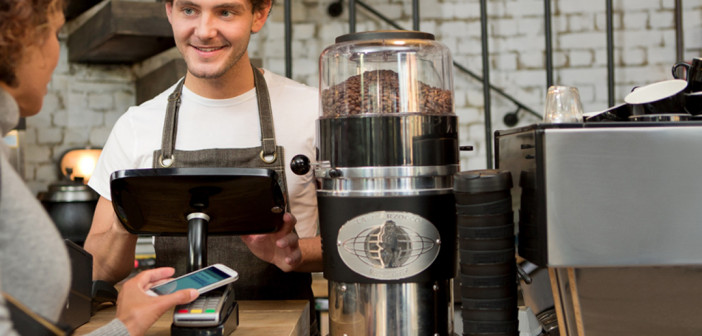By Marc Pettican, managing director, The Logic Group
“The customer is always right” or so goes the well worn maxim. In fact, it’s truer today than it has ever been. Increased competition, developments in technology and market forces such as globalisation have put consumers firmly in the driver seat. We shop where we like, when we like from wherever we like. And if a retailer doesn’t meet our needs? We happily move on to someone who can.
This has put merchants in something of a quandary. They have to meet the needs of increasingly demanding consumers and do so across multiple channels, all the while maintaining a consistent customer experience. The businesses which are able to do this are the ones who will succeed; those that can’t, will be quickly left behind.
What is omni-channel?
The concept of omni-channel shopping has been gaining traction in the industry for some time because retailers are more than ever having to react to the evolving shopping habits of the modern customer.
Customers today not only have the high street to shop, far from it. They can hit the phone, go online or shop on mobile. This kind of shopper is looking for the next best bargain, the lowest cost and the best service, and is testing retailers’ adaptability. According to Logic Group research, for example, a large proportion of customers used multiple channels to buy their Christmas gifts in 2014. In fact, it was estimated that as many as 43 million Britons were using a combination of instore, online and click-and-collect to purchase products.
That figure is only going to climb this year, as retailers strive to create the best possible customer experience that meets customers’ demands for quick, simple and convenient fulfilment of their shopping desires. Unfortunately, some retailers are struggling with the challenges of an omni-channel world, especially when it comes to creating a consistent and seamless customer payment experience across offline and online channels in a secure and compliant way.
Security a top priority
Every retailer must keep their data and payments infrastructure secure. By complying with the Payment Card Industry (PCI) rules around customer payment data they are showing their intent to keep customer data safe. Yet even those with the best intentions can be victims of security breaches which can incur regulatory fines, but even worse dent customer confidence.
According to research from Censuswide focusing on retailers in 2015, almost 70% of UK retailers have lost important data, with 22% having been hacked. A worrying statistic when personal and payment data is often the end goal of a cyber attack.
There is a technology out there to help retailers big and small meet the challenges of an omni-channel environment. Tokenisation is a payment security technology that helps secure customer data. Not only does it encrypt customer data at the point of sale, it also offers the potential for merchants to understand payment patterns without requiring any personal data.
Tokenisation to win
It does so by assigning an alphanumeric code, or ‘token,’ to the payment data when a transaction is being processed. Therefore, information about a customer’s card and personal details are reduced to a string of numbers and letters, indecipherable to any fraudsters who could have gained the data via a data breach.
As the token is associated to the customer’s payment card, tokenisation enables merchants to can gain insight into customer behaviour and spending patterns and how individual customers are using different channels for shopping, all the while keeping transaction data safe.
Once in place, the benefits of such a solution will be felt by retailers as well as customers. For example, when a customer makes their first purchases instore, their details are kept securely while a token is attributed to the payment card. As the customer continues to shop, online or offline, merchants can build a better profile of the customer purchase patterns.
It’s a tough environment out there for merchants of all kinds. Even as the financial crisis which claimed so many well-known High Street names fades ever so slightly into the memory, the environment is fiercely competitive.
Consumer power and technology combined have led to increased consumer expectations: speedier deliveries, smarter location-based offers, and even anticipation of desires. Meeting these expectations is fundamental to survival. This means knowing your customers and anticipating what they want. This is achieved by tracking the entire customer journey, including the payment experience. This needs to be done all the while safeguarding customer data to maintain trust. Those with tokenisation have already won half the battle.
The Logic Group is an established market leader in the provision of trusted payment and loyalty solutions, initially for the UK and Ireland, and now increasingly across the rest of Europe. In 2014 it was acquired by Barclaycard.





